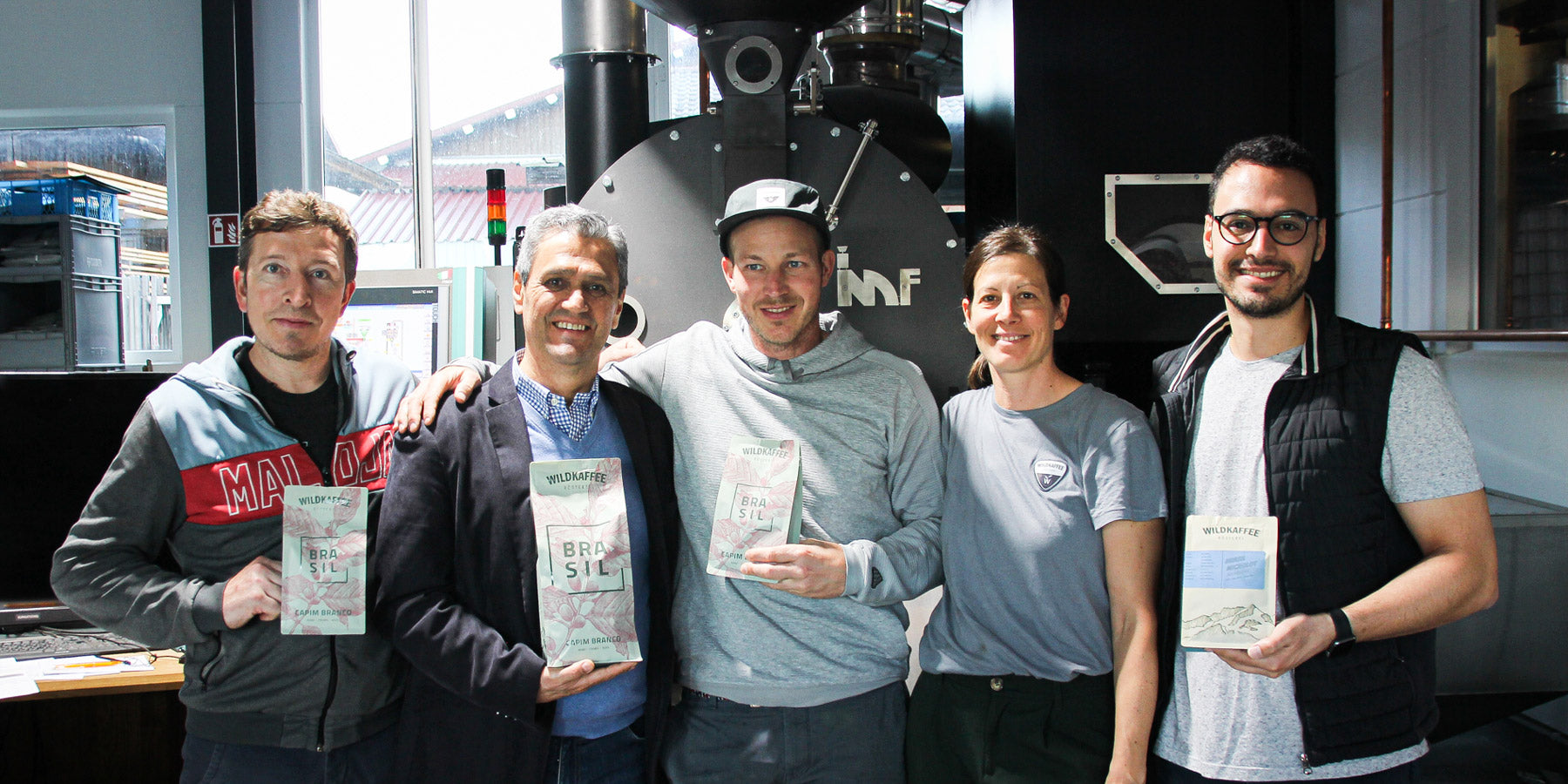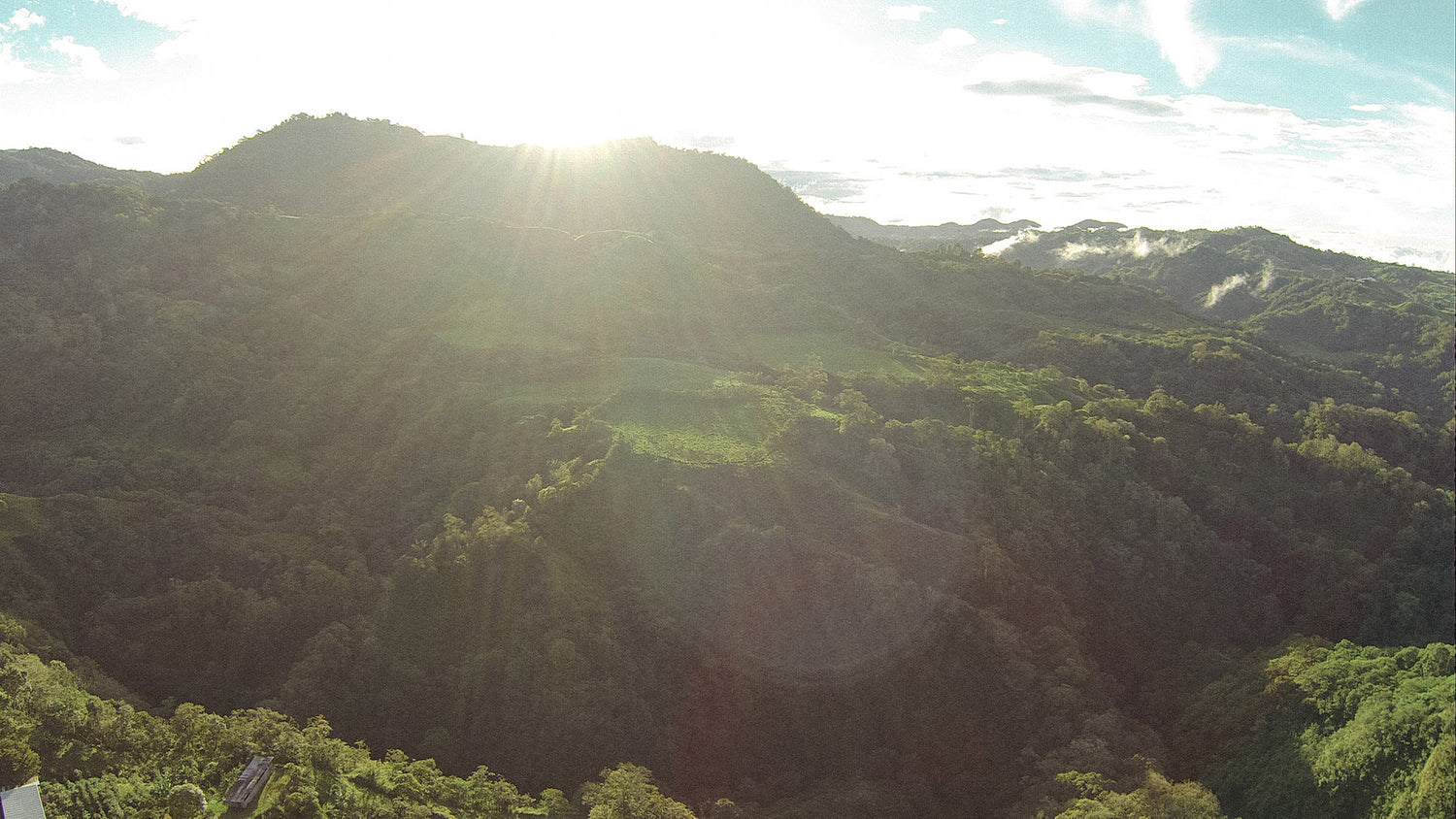The price of coffee is not just made up of the price that the roaster pays the farmer . There are many other factors that affect the price of coffee, which you, or rather everyone, pays in the supermarket and in the many online shops. In this article, we will also show you how to recognize high-quality coffee and roughly what a kilo of coffee should cost so that the farmer gets enough money. But be careful! Expensive does not mean good when it comes to the price of coffee. Rather, it is about the various intermediate steps and the entire trade route that the coffee takes. But enough teasing. Let's get started and look at the price of coffee! Elias Fischbacher from the Wildkaffee Rösterei hopes you enjoy the new information!
Coffee price on the world market
I bet you don't regularly keep up to date with the world market price of coffee! Most coffee drinkers probably do n't think about the price of coffee when they enjoy an excellent cup of coffee. No wonder, because significant changes that also affect consumers only occur when there are long-term price fluctuations. These fluctuations have been enormous in the last 10-15 years . No wonder, because various crises, civil wars and blocked trade routes have caused the price of coffee to rise and fall in short intervals.
This will probably continue in the near future, because especially now , due to inflation and the global political situation, these price fluctuations are something completely normal and easy to get hold of for traders who specialize in raw materials. But why the beans are sometimes so cheap right now (December 2022) is simply because the coffee was harvested on the world market weeks or months before trading on the stock exchange . As already indicated in the teaser, it is not just the price of coffee that determines the price for the customer.

Coffee price - crises, wars & climatic influences are good conditions for traders
As sad as it sounds, the reality is bitter! Political crises, civil wars in the countries of origin and climatic influences that are negative for coffee cultivation are ideal conditions for traders who focus entirely on trading in commodity positions. Why? It's actually obvious if we don't view coffee as a tasty luxury item, but as an investment . If the conditions in the countries of origin around the farms are not good, less coffee can be produced. Consequently, the price of coffee also rises. This fact is not the only one that is almost perverse! In the next section, we will take a closer look at where the exchange-traded coffee with the extremely low coffee price comes from, because this fact is the second dark side of the global coffee trade.
The second dark side of exchange-traded coffee
But it is not just the actual trading on the stock exchange that has an extremely dark, speculative side. The second dark part of these coffees is the origin. Coffees that are traded at stock exchange prices are of inferior quality and payment, labor and cultivation methods also suffer from the dumping prices. As with so many products, coffee is cultivated for quantity. Quality therefore falls by the wayside. The price of coffee also has extreme disadvantages for the workers on the plantations! Child labor , toxic pesticides and fertilizers , inadequate equipment, poor pay and exploitation are just some of the attributes behind coffee traded on the stock exchange. 500g of coffee for €5-6 is usually based on a colorful blend of coffee from the stock exchange with a low coffee price. Various intermediate steps relating to the further processing of the coffee also have to be covered in terms of costs. But more on this in the following section!

Which intermediate steps influence the coffee price
As already mentioned, it is not just the price of coffee on the stock exchange that influences how high the price of coffee is for the end customer in the supermarket or in the many online coffee shops . You have to think one step further, because coffee processing is not finished after harvesting, preparation, packaging and export. Often the harvested cherries are even sold to separate processing stations, which take over the steps after the harvest and thus also earn a little money.
When the coffee arrives at the port of Hamburg, it usually ends up with a middleman, who then sells the coffee to large industrial roasters. There, too, further costs arise from processing, packaging and shipping. Now go through all of these costs in your head. You will notice that the pricing is extremely tight. Fair payment for the farmer and the employees on his coffee plantation simply does not work with such a low coffee price.

Higher coffee price thanks to Fairtrade certificate?
The Fairtrade organization recognized the situation on the world coffee market early on and over the years developed its own seal , which supposedly guarantees fair coffee prices for farmers and plantation workers. In reality, Fairtrade ensures that farmers receive a stable price for their green coffee . The Fairtrade price is assessed and set by Fairtrade's own pricing department. There is also a fixed premium for organic beans and community projects. But this requires the Fairtrade certificate and, optionally, the organic certificate. These certificates naturally cost money, which is a major disadvantage compared to farmers with smaller plantations. They often do not have the financial means to afford the annual certification.
The Fairtrade price can sometimes fall below the price of coffee on the stock exchange. This means that fair pay is not always guaranteed . In general, however, Fairtrade is a good thing in terms of working conditions and the remuneration of farmers. However, the system should continue to be optimized.
Fair coffee prices through direct trade
Direct trade with farmers is the complete opposite of coffee traded on the stock exchange. Let's start with the perspective. Coffee is preferably seen as a luxury item rather than an investment through direct trading channels . Therefore, the focus is not on the price, but on the quality and taste of the selected green coffee varieties.
This is also reflected on the farms. Sustainable cultivation with ecologically compatible fertilizers, as well as working methods and remuneration, are of the utmost importance. The interaction of all these factors results in sustainable coffee plantations that produce high-quality specialty coffee and are paid fairly and directly by roasters from all over the world. Through the direct trade route, the farmers receive direct payment for their green coffee, which is far higher than the coffee price on the stock exchange.


Coffee price - How to recognize coffee that has really been fairly traded
In general, we have devoted this blog to the price of coffee. You can tell by the price that coffee is really good, that has been cultivated and processed sustainably and with high quality. A kilo of coffee that costs €10-18 simply cannot be produced according to fair and social principles. You should spend at least €25 on a kilo of coffee.
Other qualitative factors can be seen on the packaging. For example, if the farm, variety and exact origin of the bean, i.e. as many details about the coffee as possible, are revealed, you can be sure that the coffee has been cultivated and processed to a high standard. A basic look at the roaster and the overall picture can also help you to get a more accurate picture of the green coffee used.
Coffee Price - Short & Sweet
The price of coffee on the stock exchange has a bright side, the cheap price for a lot of coffee, and an absolutely dark side, speculation, poor pay, catastrophic working conditions, poor quality are just some of the attributes that fall into this dark corner of the global coffee trade . Fairtrade has been trying to control coffee traded on the stock exchange with its own pricing system for some time, but the system still needs some optimization. Direct trading takes place far away from these systems. As few intermediate steps as possible, the best quality and the focus on taste are what make direct trading. Coffee is not seen as a trading commodity, but as a luxury item . So #staywild!


